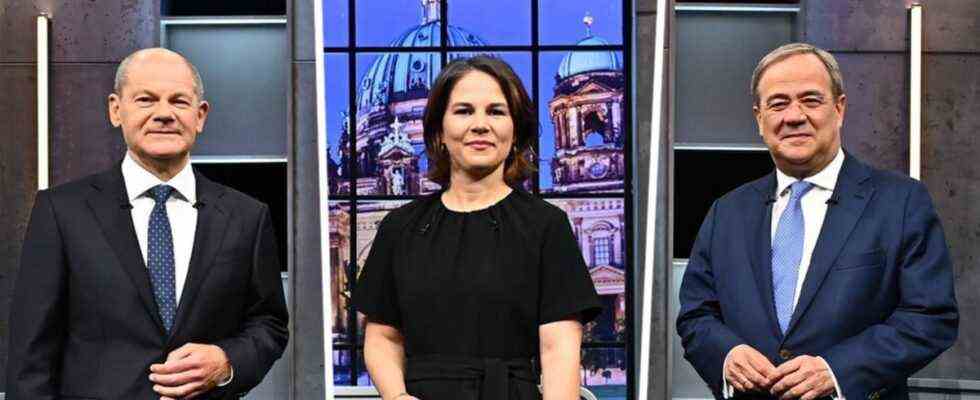Assume that Olaf Scholz actually becomes Federal Chancellor; but also assuming that he does not succeed in raising the minimum wage to twelve euros within a year: Then three statements from the past weekend offer themselves to judge this Chancellor. One is from Saturday, Scholz stood on Munich’s Marienplatz and said: “I am committed to it” – namely that in the first year of his government the increase of the minimum wage to twelve euros would be decided. The second statement came the next day, from the Picture on sunday. There Scholz was quoted as follows: “I promise the citizens: With me as Chancellor, the minimum wage will be raised to twelve euros next year.”
The difference between this sentence and the one on Munich’s Marienplatz is considerable – and with the third one Triell On Sunday evening, Scholz seemed to have recognized that he had chosen a formulation in the paper that could still fly around his ears. The Triell presenter Linda Zervakis repeated a question from the newspaper colleagues: Will he stick to the fact that the twelve euros are his condition for every coalition? And whether the citizens could rely on it? Scholz replied in two parts: First, he said that the citizens could rely on it. And then went on to say that he “wanted” to enforce this in the first year. With that word he was rhetorically back on Marienplatz.
The election manifestos usually say: “We want …”
For people who do not deal with politics and language full-time, a difference between all these sentences may hardly be obvious – or sound like quibbling. In Munich and in Triell, Scholz promised exactly what he can realistically promise: to work for a minimum wage of twelve euros. Whether the operation will be successful depends on a lot: above all on coalition partners and on possible counter-deals in the future coalition. Maybe at some point you will agree on 10.70 euros, for example. In that case, Scholz could seriously refer to not having promised the twelve euros, but only the commitment for it. In the Picture on sunday however, he had not only promised the commitment, but the result of it.
A prejudice about politics is that big promises are made there, but nobody keeps them afterwards. In its absoluteness, this has always been wrong, it is partly due to the fact that people forget: election programs – which is why they often contain expressions such as “we want” – can only be declarations of intent. They remain so at least as long as the party declaring all of its intentions does not achieve an absolute majority and consequently has to come to terms with the intentions of other parties – coalition partners. It is like everything else in life: you should really only make the promises you can keep.
Which of course can also be: that Scholz is with the Picture-on-Sunday-Satz as well as the first part of his answer to the Zervakis question adhered to this rule: The twelve euros come, as true as his name is Olaf. But then his answer would be tantamount to suggesting that red-green-red is now his option after all – in such a coalition the twelve euros would be possible without any problems. Incidentally, Armin Laschet immediately pointed this out. The moderators did not take it up.

